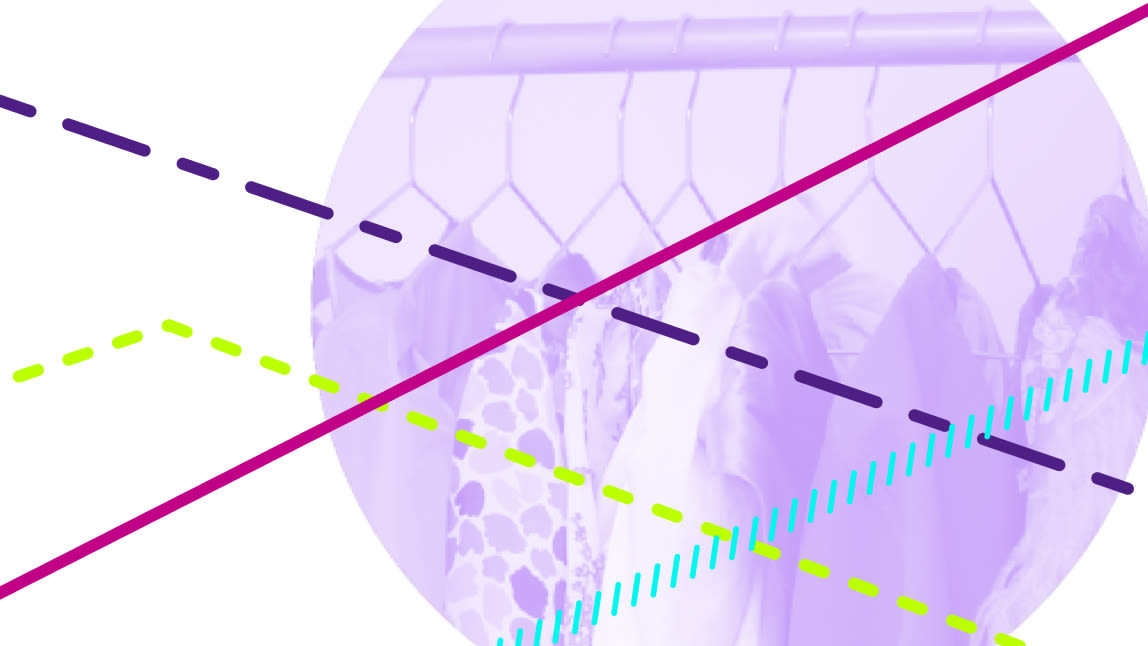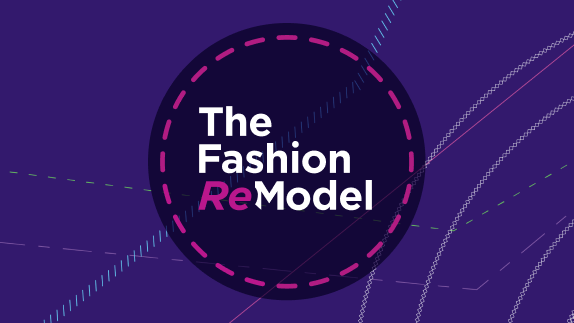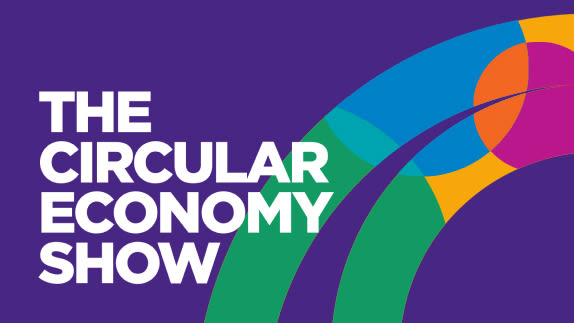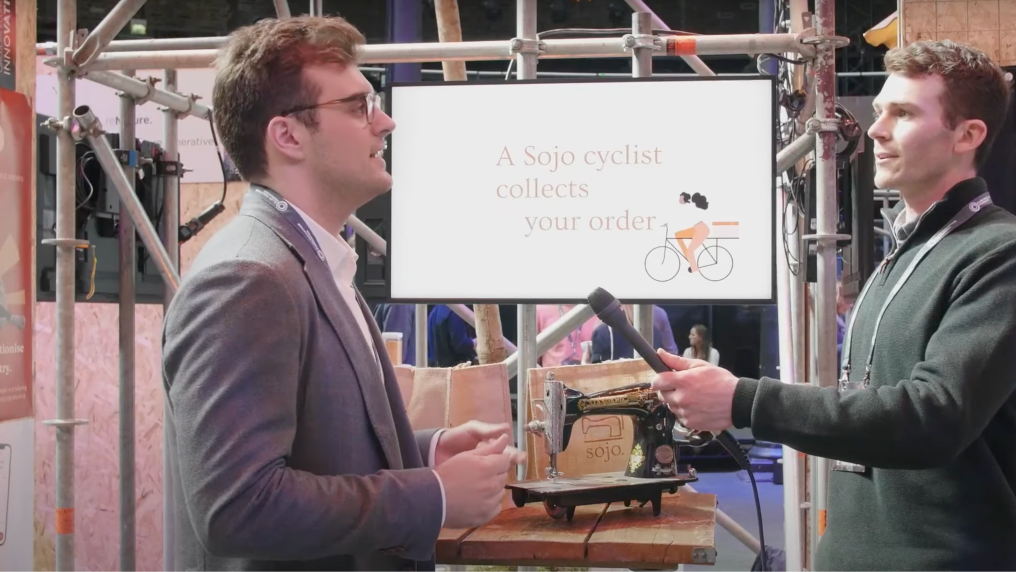The Fashion ReModel participants work across high-end, activewear, retailers, mid-range and high-street and include: Arc'teryx, Crystal S.A.S, DECATHLON, eBay, H&M Group, and its brands ARKET, COS and WEEKDAY, John Lewis, Primark, Reformation, Tapestry and Zalando. Brands are all part of the Foundation’s Network of Strategic Partners, Partners, and Members.
Participants

ARC'TERYX

ARKET

COS

Crystal S.A.S

Decathlon

Ebay

John Lewis

Reformation

tapestry

Weekday

Read more about how we are working across regions to accelerate the transition to the circular economycircular economyA systems solution framework that tackles global challenges like climate change, biodiversity loss, waste, and pollution. It is based on three principles, driven by design: eliminate waste and pollution, circulate products and materials (at their highest value), and regenerate nature..


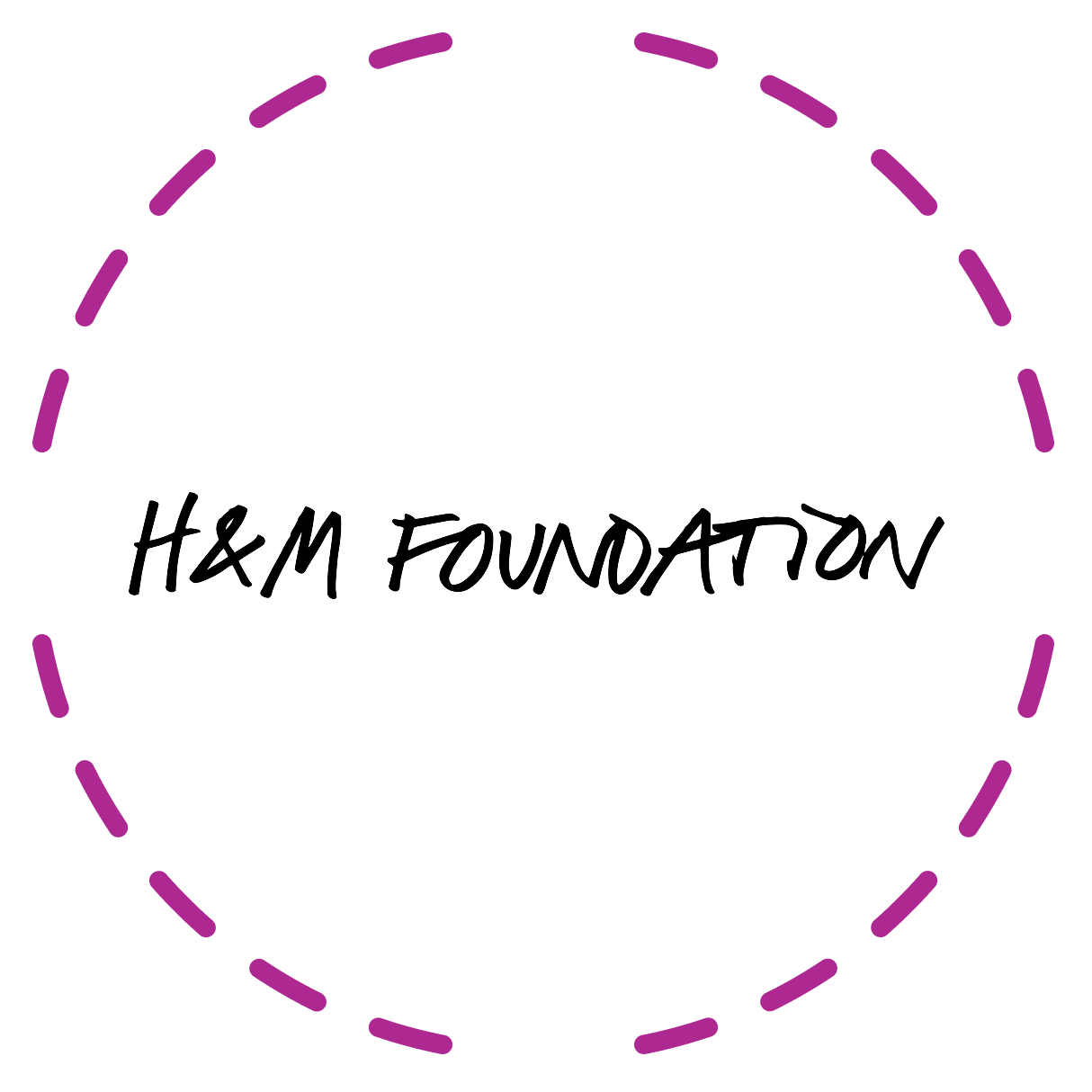
Supporter
H&M Foundation will philanthropically support The Fashion ReModel over the next three years. Funded by the Persson family, the H&M Foundation leverages its philanthropic strengths to drive transformative change, focusing on high-emission areas in the textile value chain.


Technical Reference Group
The Technical Reference Group is made up of leading industry experts on key topics from finance to supply chains, technology to marketing. The group has been established to share knowledge and expert opinions, informing the direction of the project and driving alignment across the industry.
Endorsements
“Circularity is one of the core enablers for fashion's systemic transformation. As our valued Impact Partner, Global Fashion Agenda is a proud supporter of the Ellen MacArthur Foundation’s Fashion ReModel project, which can help to dismantle barriers through fostering collective action on circularity. The launch of such a dynamic initiative at Global Fashion Summit aptly aligns with our theme of ‘Unlocking the Next Level’, epitomising tangible action and alliances that can advance the industry.”
- Federica Marchionni, CEO, Global Fashion Agenda
“The Fashion Remodel demonstration project is a much needed initiative to help the industry unlock the barriers to scaling circular business models. We look forward to collaborating and contributing to this initiative."
- Georgia Parker, Innovation Director Fashion for Good
“There is no two ways about it, for true systems change, the fashion sector has to start seeing value creation decoupled from new production. Action on circular business models is imperative for this, which is why this programme is so important - helping to unlock barriers for the industry to drive measurable revenue increases against a set of ambitions to do so.”
- Rachel Arthur, Sustainable fashion strategist and consultant
“Enabling business to operate successfully within planetary boundaries is critical to advancing a world in which all people can thrive on a healthy planet. We are pleased to support this effort to promote and pioneer the circular business models the global fashion industry urgently needs to secure a just and sustainable future for all.”
- Cliodhnagh Conlon, Director, Consumer Sectors BSR
“The British Fashion Council, through its Institute of Positive Fashion are leading on the Circular Fashion Innovation Network which is focused on accelerating the UK towards a Circular Fashion Ecosystem and preparing businesses for the exciting innovations and opportunities that lie ahead. The designers are masters of creativity and reinvention, and their perspectives are essential to create a thriving fashion industry for the future. This is only possible through collaboration by convening the industry and broader stakeholders. We are happy to endorse The Fashion ReModel demonstration project and look forward to gaining insights, which will support the adoption of circular models by 2030”.
- Caroline Rush, Chief Executive, British Fashion Council
"WRAP research shows that, on average, each person in the UK throws a shocking 35 items of unwanted textiles straight into their rubbish bin every year. We are producing and consuming too many new clothes while also throwing too many of our items away. As an industry we need to do more to provide avenues and options for individuals to keep their clothing in use for longer and provide alternatives to buying new. Circular business models are an important focus for WRAP and for the industry. We have seen growing popularity in resale, repairrepairOperation by which a faulty or broken product or component is returned back to a usable state to fulfil its intended use. and rental markets, all of which offer opportunities to disrupt the status quo and transition to business models that align with sustainability ambitions. We know that there is increased consumer receptivity to these markets and we commend the work The Ellen MacArthur Foundation is doing to unlock industry progress in this space.”
- Catherine David, CEO, WRAP






